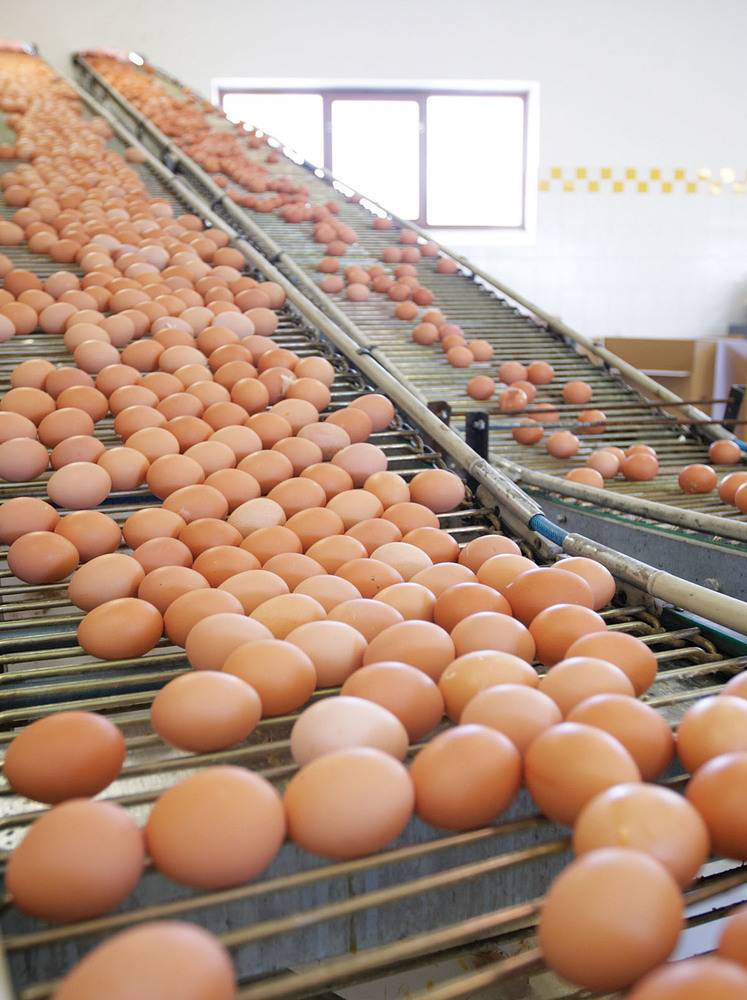The 2022 Top U.S. egg producing companies have been published by WATTPoultry. The top 40 companies have been listed, and it has been found that the total number of laying hens in the U.S. has remained unchanged from the end of 2020. Despite the transition from cages to cage-free, the U.S. layer population has not decreased.
According to the 2021 Top Egg Company Survey, the 67 largest U.S. egg producers had 344.72 million hens housed on December 31, 2021. The top 10 largest U.S. egg producers are responsible for 52.6% of total U.S. table egg production, and over 70% of U.S. eggs are produced by the top 20 U.S. egg producers.
| Rank | Company | Number of hens (millions) |
|---|---|---|
| 1 | Cal-Maine Foods | 46,78 |
| 2 | Rose Acre Farms | 27,59 |
| 3 | Hillandale Farms | 20 |
| 4 | Versova Holdings LLP | 19,95 |
| 5 | Daybreak Foods | 14,48 |
| 6 | Michael Foods | 11,91 |
| 7 | Center Fresh Group | 11,5 |
| 8 | MPS Egg Farms | 11,1 |
| 9 | Prairie Star Farms | 9,3 |
| 10 | Gemperle Family Farms | 8,6 |
| 11 | Opal Foods | 8,39 |
| 12 | Herbruck’s Poultry Ranch | 8,3 |
| 13 | Weaver Brothers | 8 |
| 14 | Sauder’s Eggs | 6,6 |
| 15 | Rembrandt Enterprises | 6,25 |
| 16 | Kreider Farms | 6,1 |
| 17 | Hickman’s Egg Ranch | 6 |
| 18 | Mid-States Specialty Eggs | 6 |
| 19 | Hidden Villa Ranch | 5,5 |
| 20 | Sparboe Farms | 5,48 |
| 21 | Fremont Farms of Iowa | 5,3 |
| 22 | S&R Egg Farm | 4,78 |
| 23 | Wabash Valley Produce | 4,7 |
| 24 | ISE America | 4,56 |
| 25 | Sunrise Farms Inc. | 4,5 |
| 26 | Cooper Farms | 4,33 |
| 27 | Minnich Poultry | 3,94 |
| 28 | Ritewood/Oakdell Egg Farms | 3,68 |
| 29 | Konos Inc. | 3,4 |
| 30 | Creighton Brothers | 3,2 |
| 31 | Forsman Farms | 3,1 |
| 32 | Esbenshade Farms | 2,8 |
| 33 | Berne Hi-Way Hatchery Inc. | 2,4 |
| 34 | Sunrise AcresEgg Farms | 2,38 |
| 35 | Central Valley Eggs | 2,3 |
| 36 | Giroux’s Poultry Farm | 2,3 |
| 37 | Pearl Valley Eggs | 2,23 |
| 38 | Kreher’s Eggs | 2,2 |
| 39 | Hamilton Eggs LLC | 2 |
| 40 | Schipper Eggs LLC | 1,82 |
